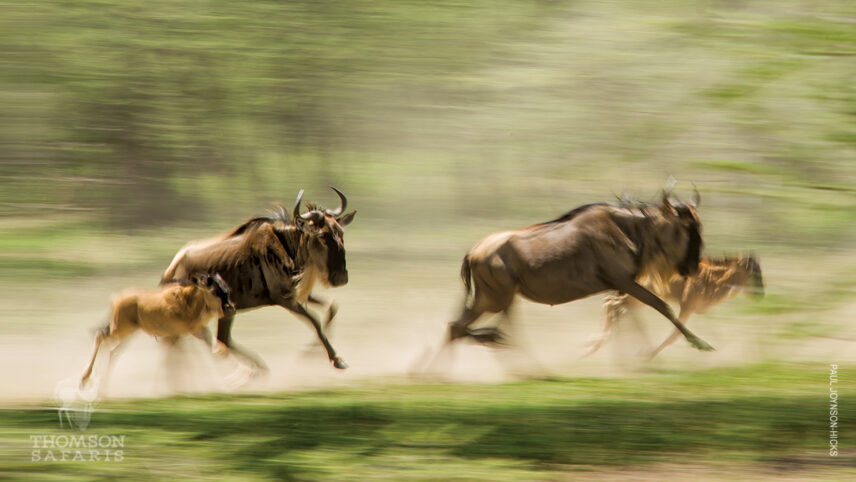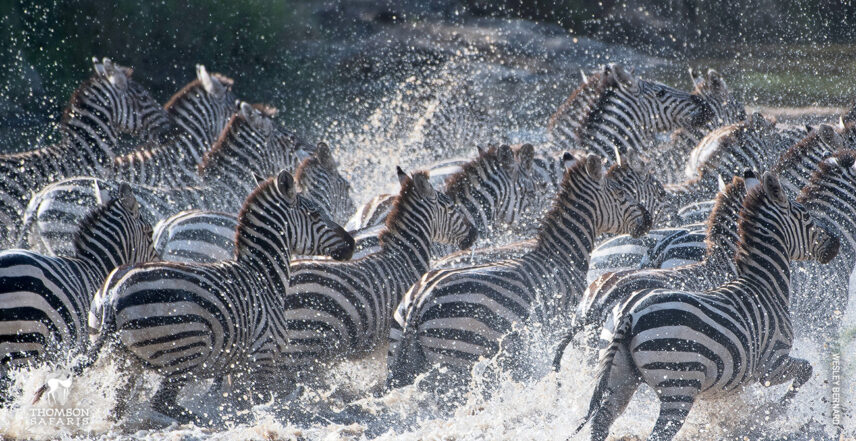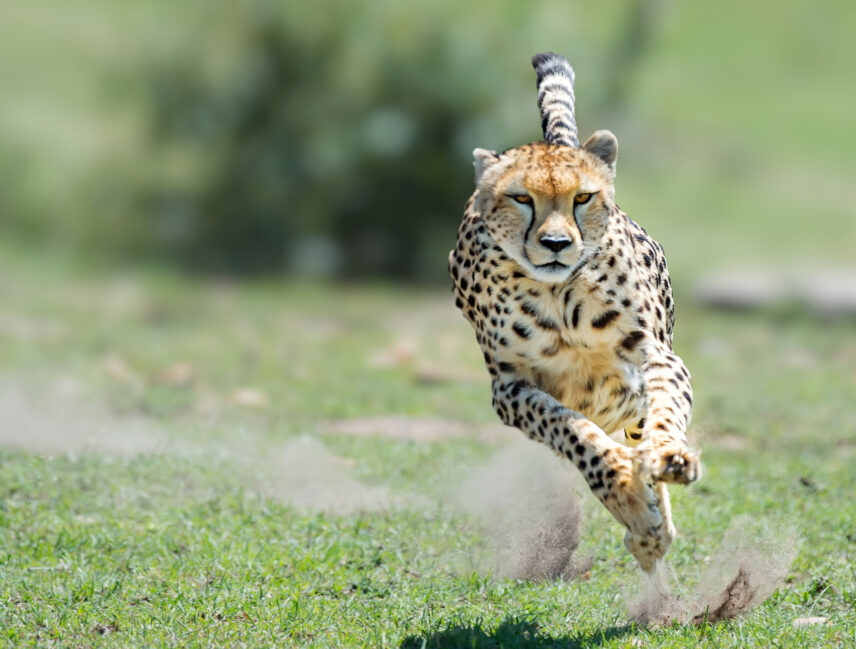You’ve seen the explosive speed of the cheetah. Cruising at a top speed of 70 miles per hour, it’s hard to imagine any animal could outpace this feline.
Put the finish line a mile away, though, and the cheetah becomes one of the weaker racers on the plains. Big cats aren’t known for their stamina. Lions, leopards, cheetahs – they wouldn’t stand a chance in a 26.2-mile race.
If we held a marathon for the Serengeti’s animals, the winners would look something like this.
5. African Wild Dog

The largest canine in Africa isn’t the quickest animal out there. Instead, it relies on persistence hunting with a pack to exhaust its prey. Thanks to its long legs and large lungs, African wild dogs can chase gazelles, impalas, and for miles without tiring.
4. Wildebeest

The largest Great Migration participant – the wildebeest spends nearly its entire life running. In fact, a wildebeest calf learns to run just 10 minutes after being born. They have migrated in a constant 500-mile loop around the Serengeti for millennia, becoming one of nature’s great endurance runners.
3. Zebra

Horses are some of the best long-distance runners in the entire animal kingdom, and in the horse family, zebras have a lower top speed but higher endurance, according to the World Animal Foundation.
2. Human
Believe it or not, we would outrun most of the wildlife in the Serengeti, including the zebra. Skeptical? The Welsh town of Llanwrtyd Wells has collected over 36 years of data during its annual 22-mile man-versus-horse race. Humans regularly beat many of the competing horses, especially when temperatures are high because humans are more capable of expelling heat.
More surprisingly, the humans who compete in Llanwrtyd Wells aren’t elite racers. Extend the race to a regulation 26.2-mile course in the Serengeti heat with world-class athletes, and humans would outrun every animal but one.
1. Ostrich

The world’s biggest bird is also the best marathon runner on the planet. While the official world record marathon time for a human is just below 2 hours, 3 minutes, an ostrich could run a marathon in an estimated 45 minutes, according to Popular Mechanics.
They owe their tremendous speed to their springy tendons, according to a report in the Royal Society journal Interface. While ostriches and humans use nearly the same amount of mechanical work to run, ostriches use just half the energy thanks to the elastic energy stored in their tendons.


